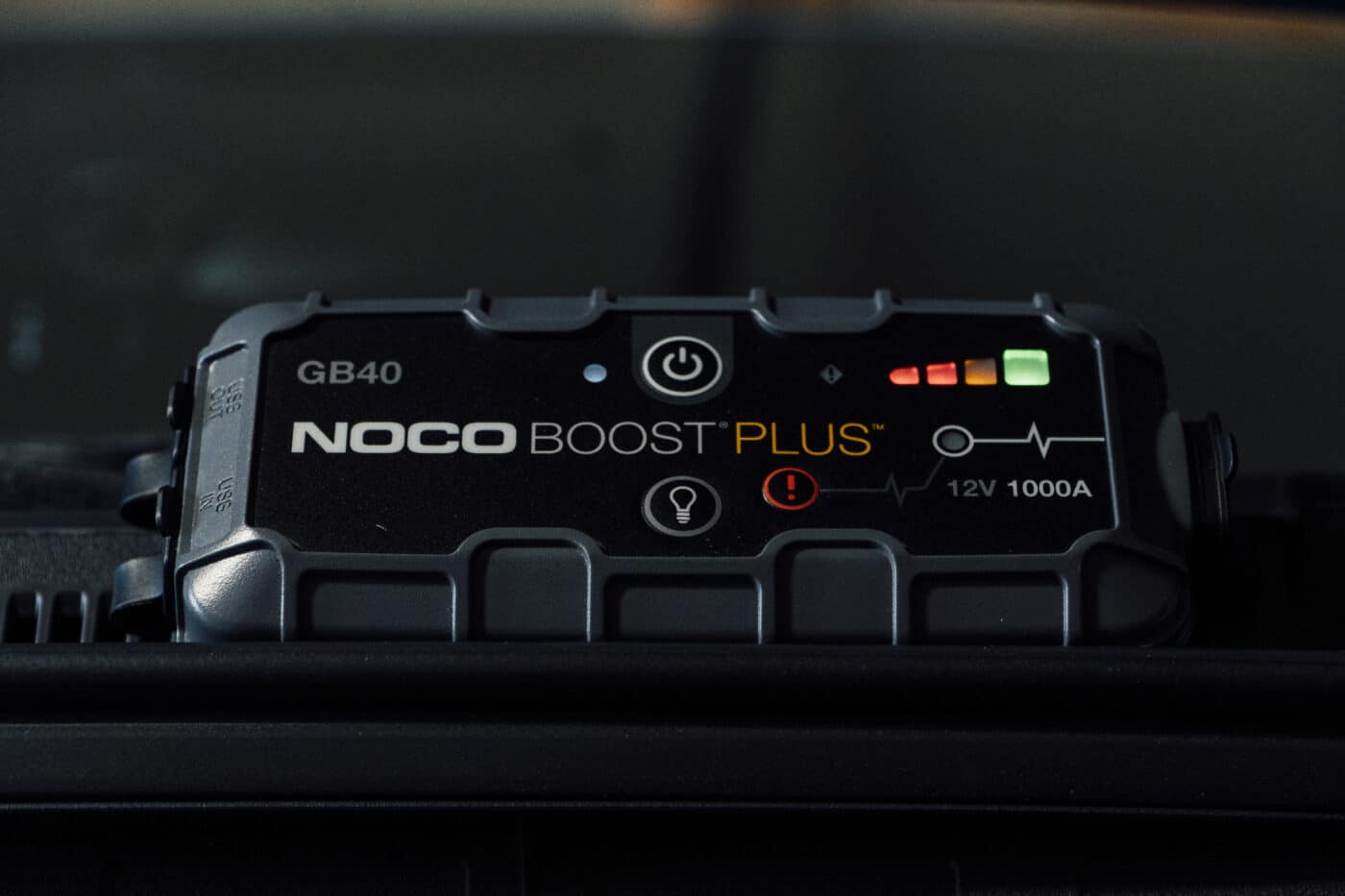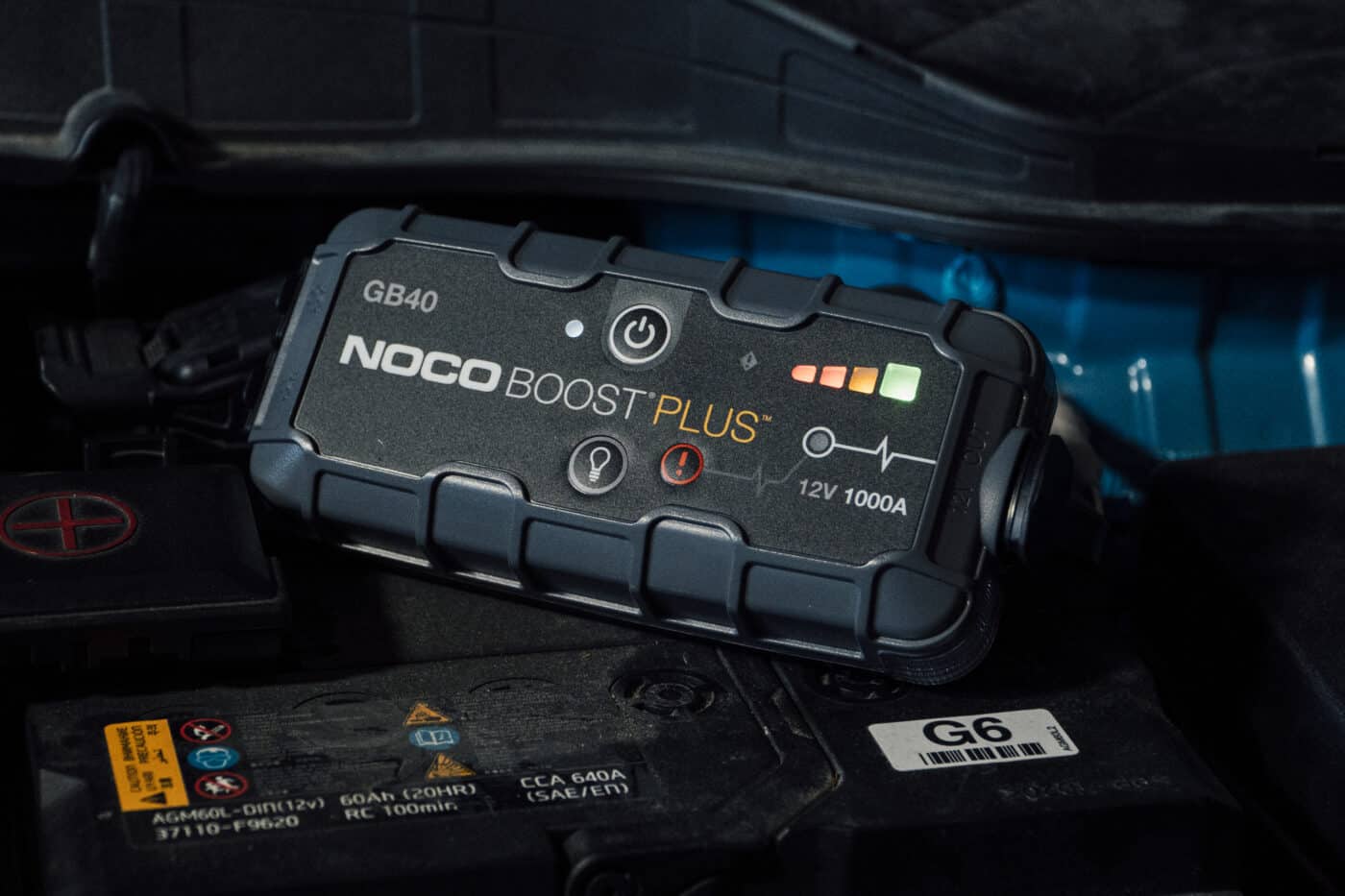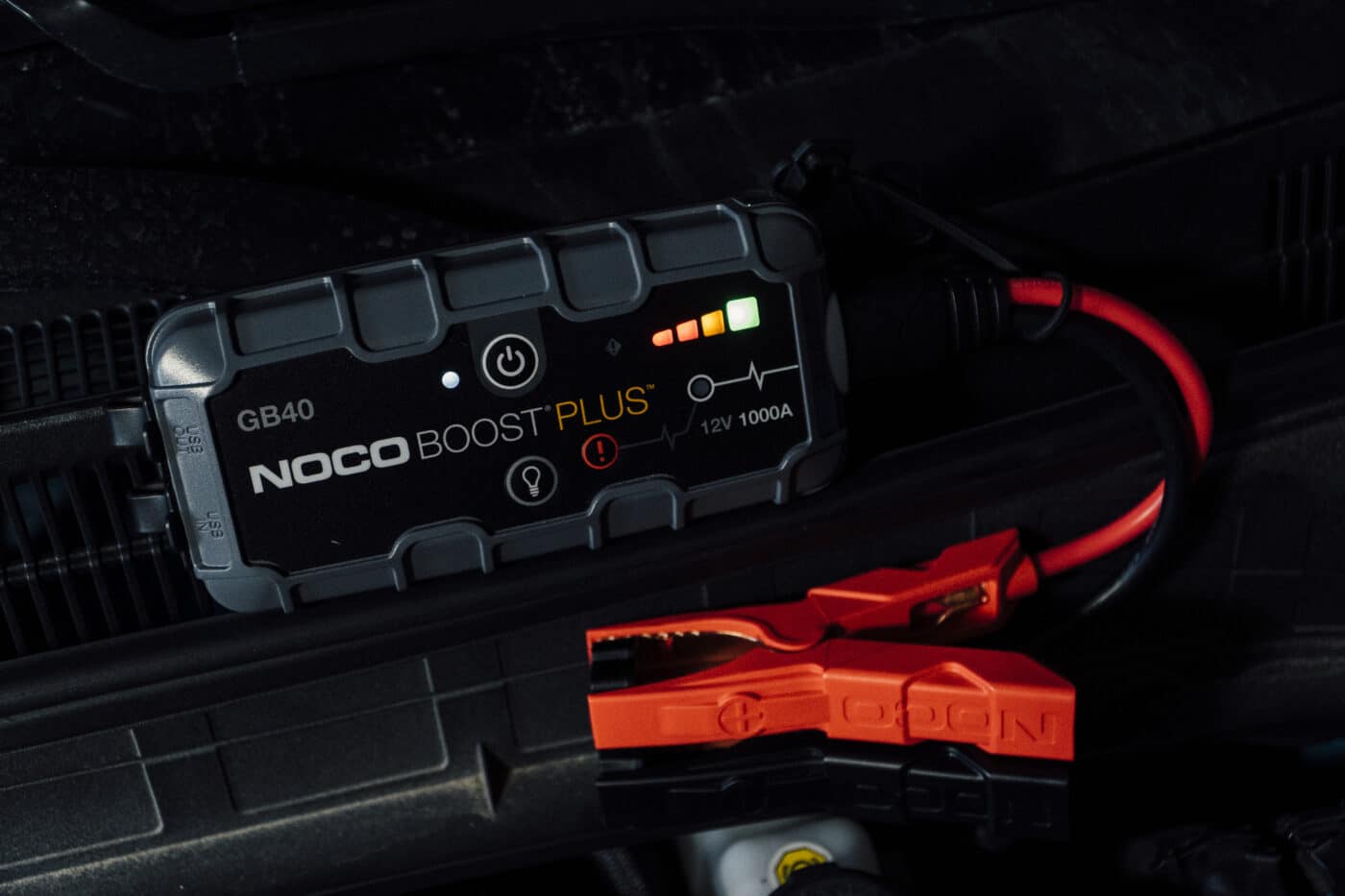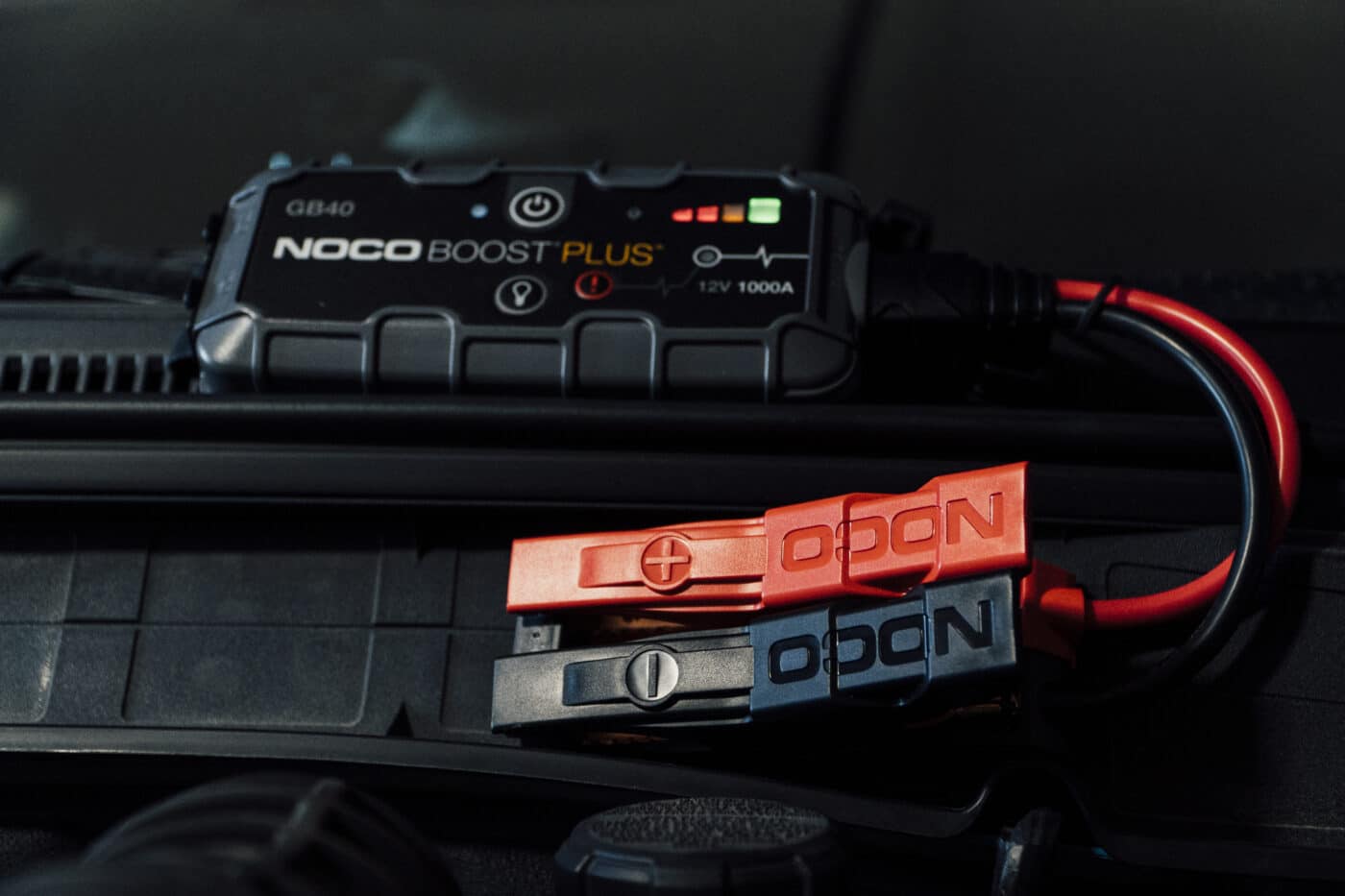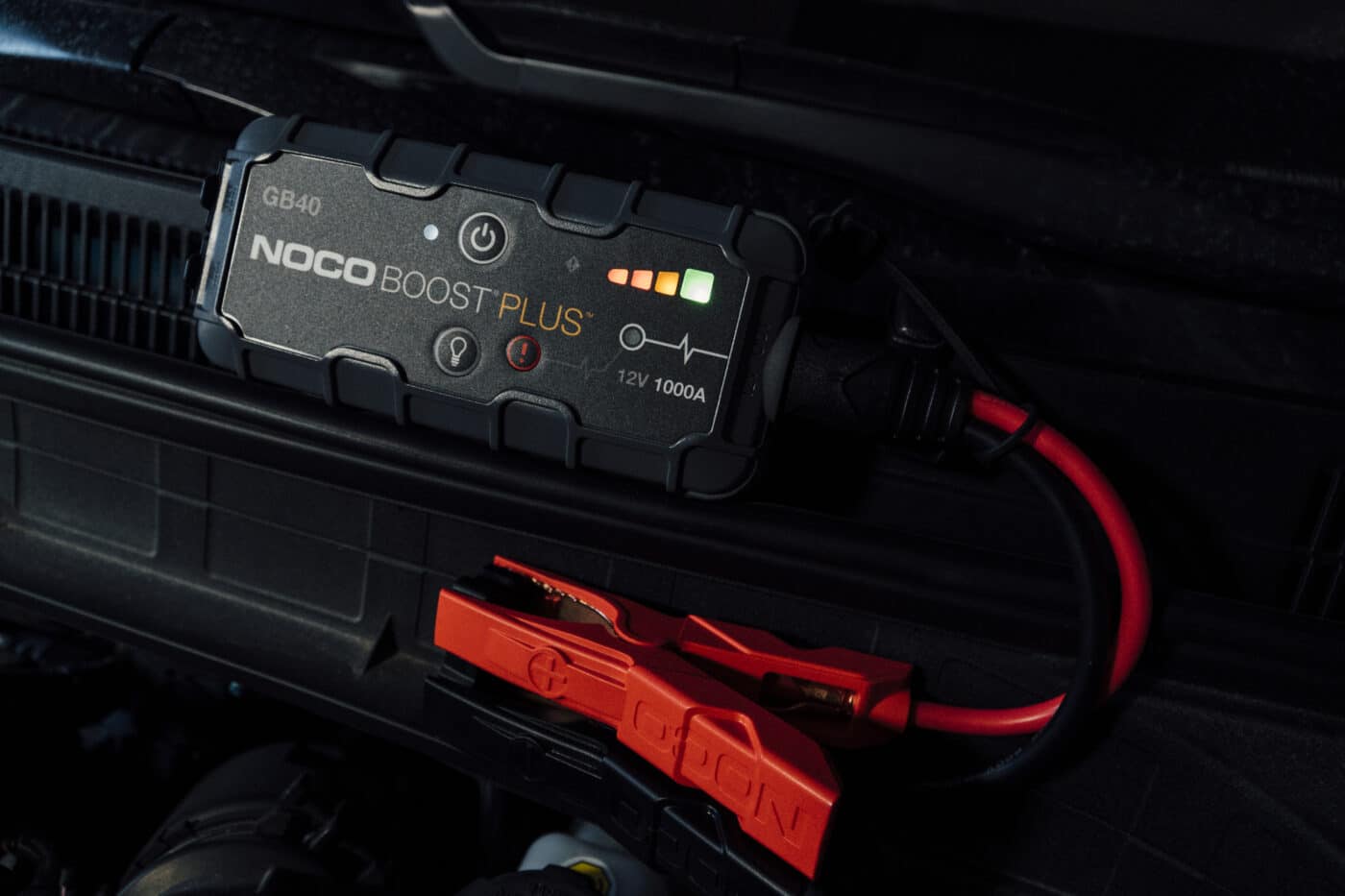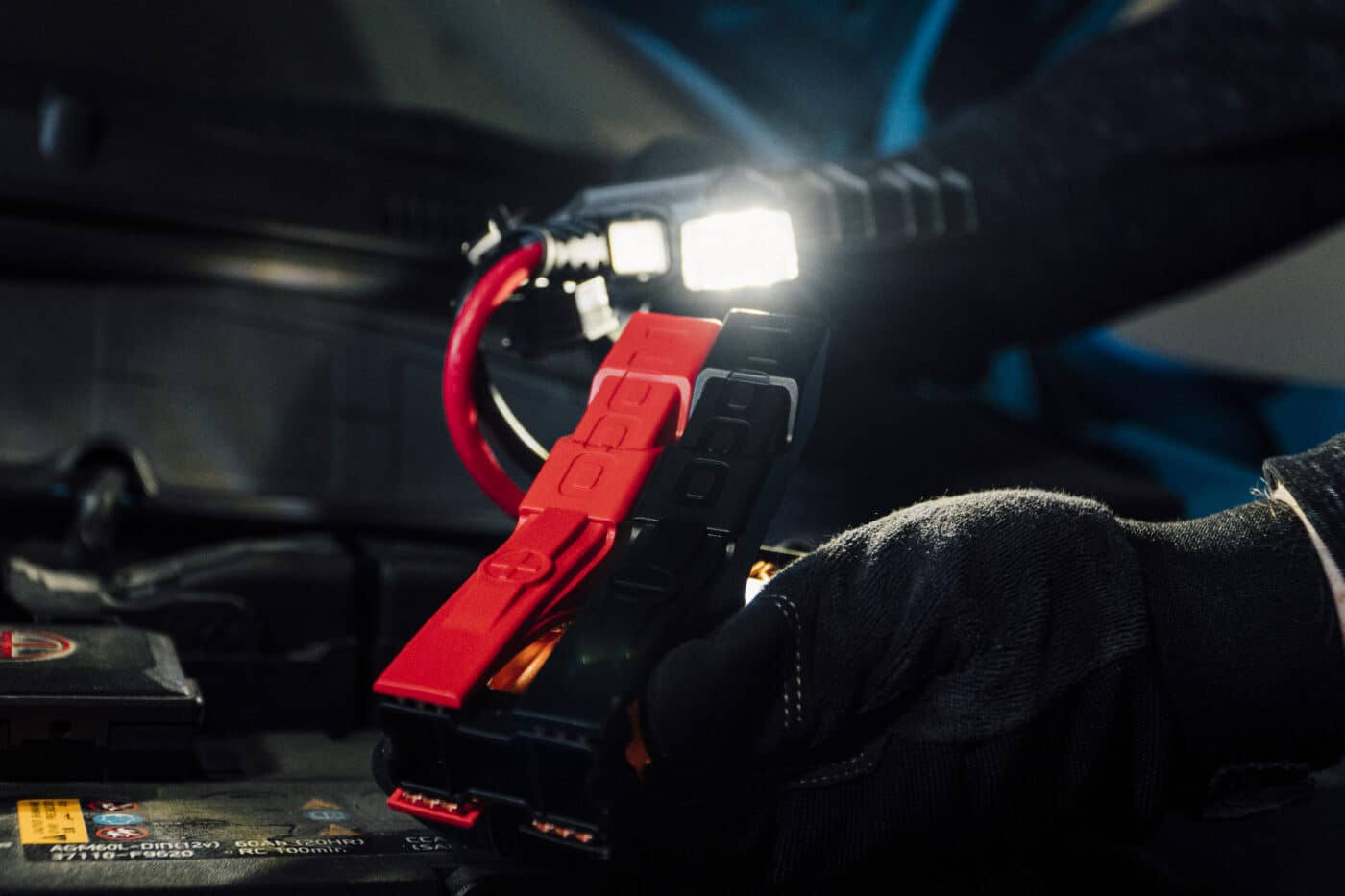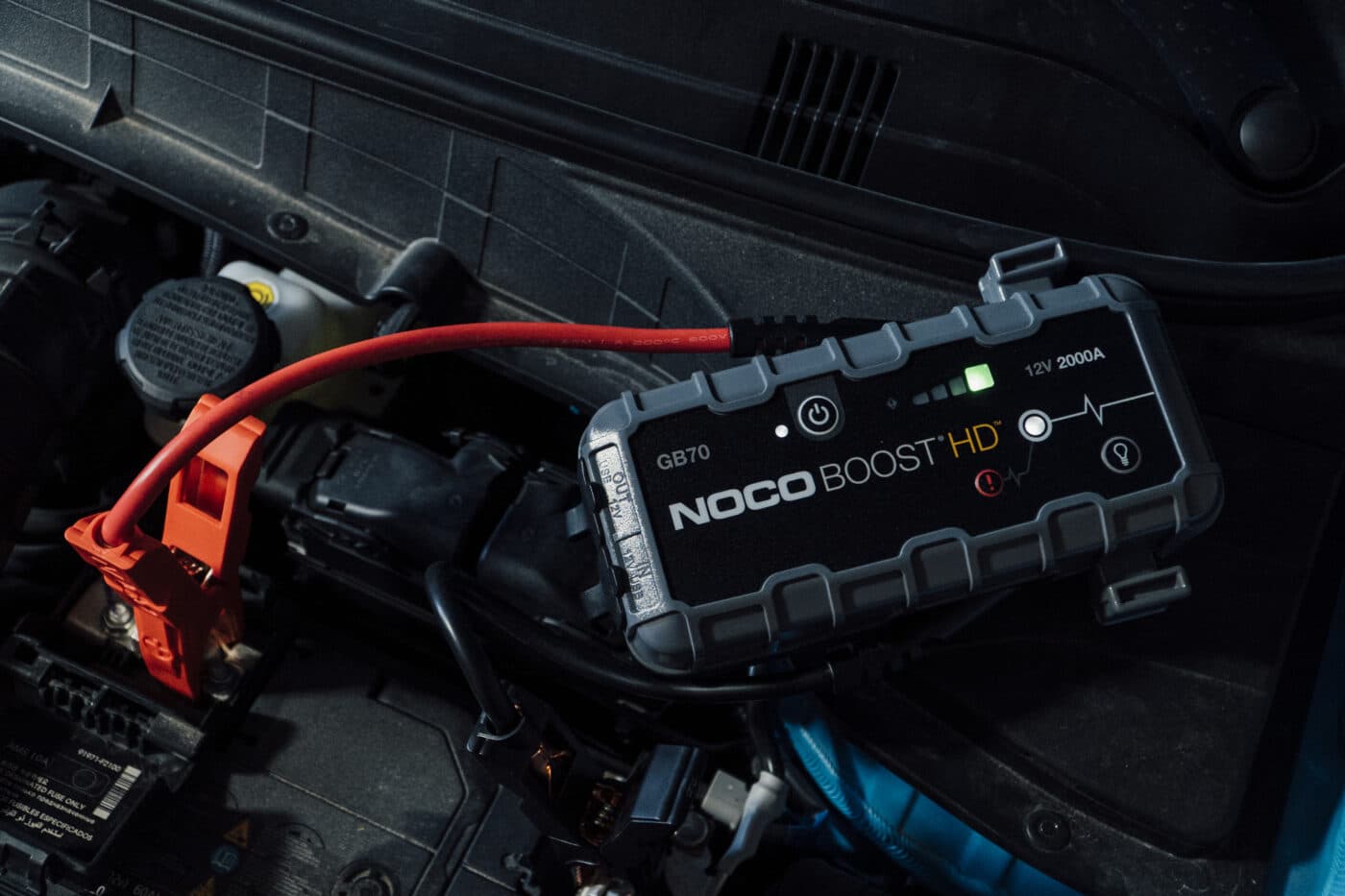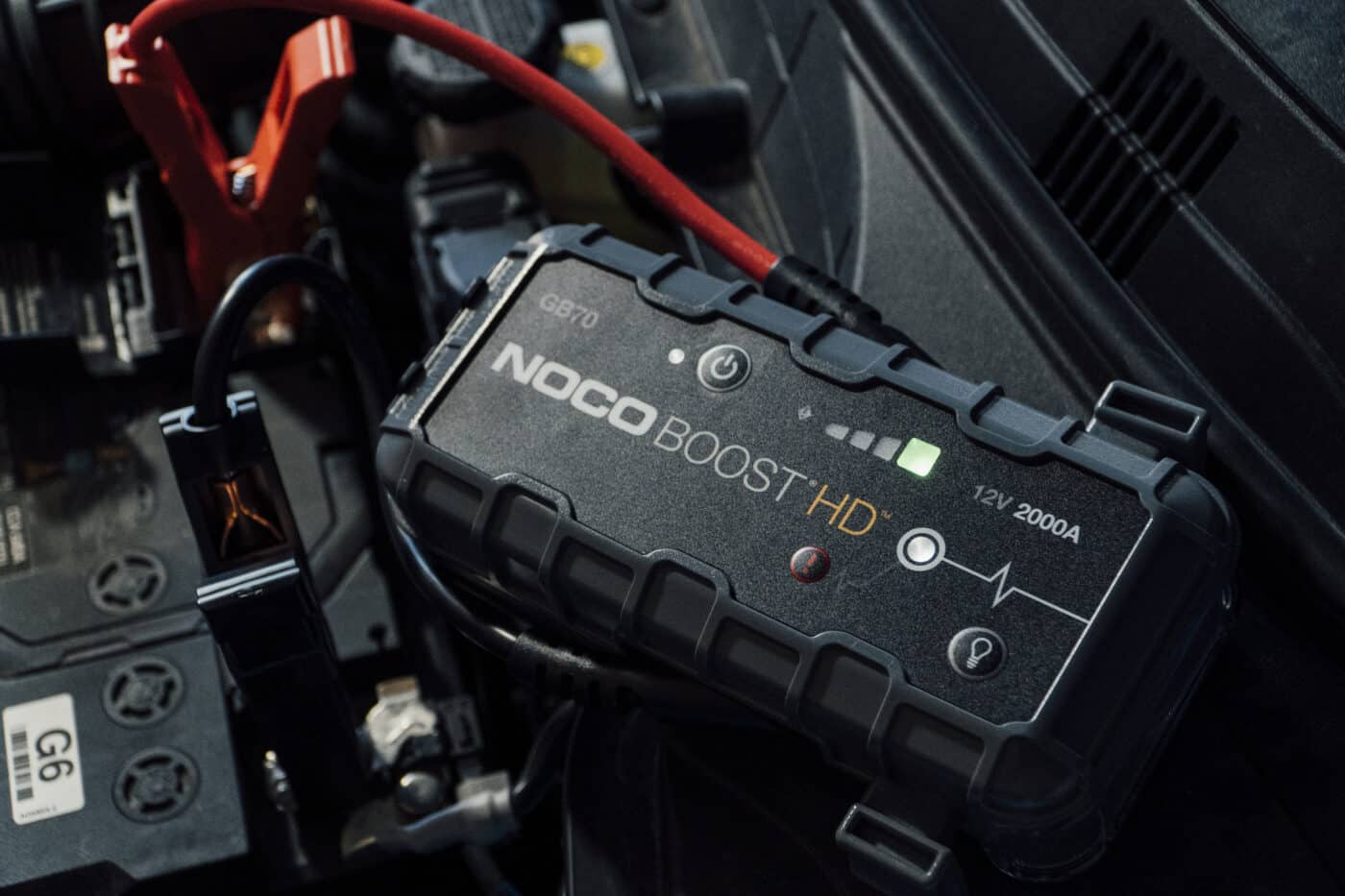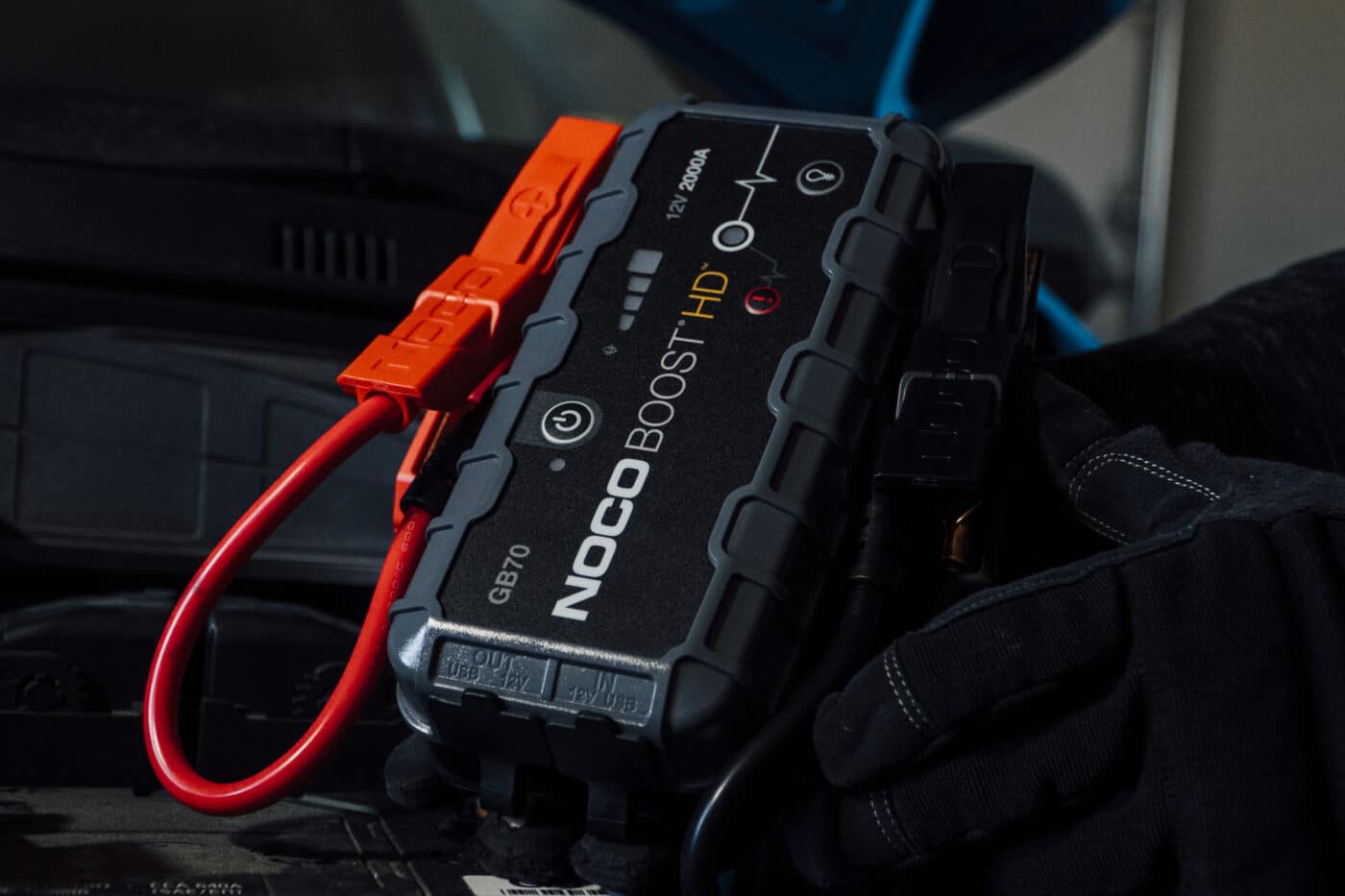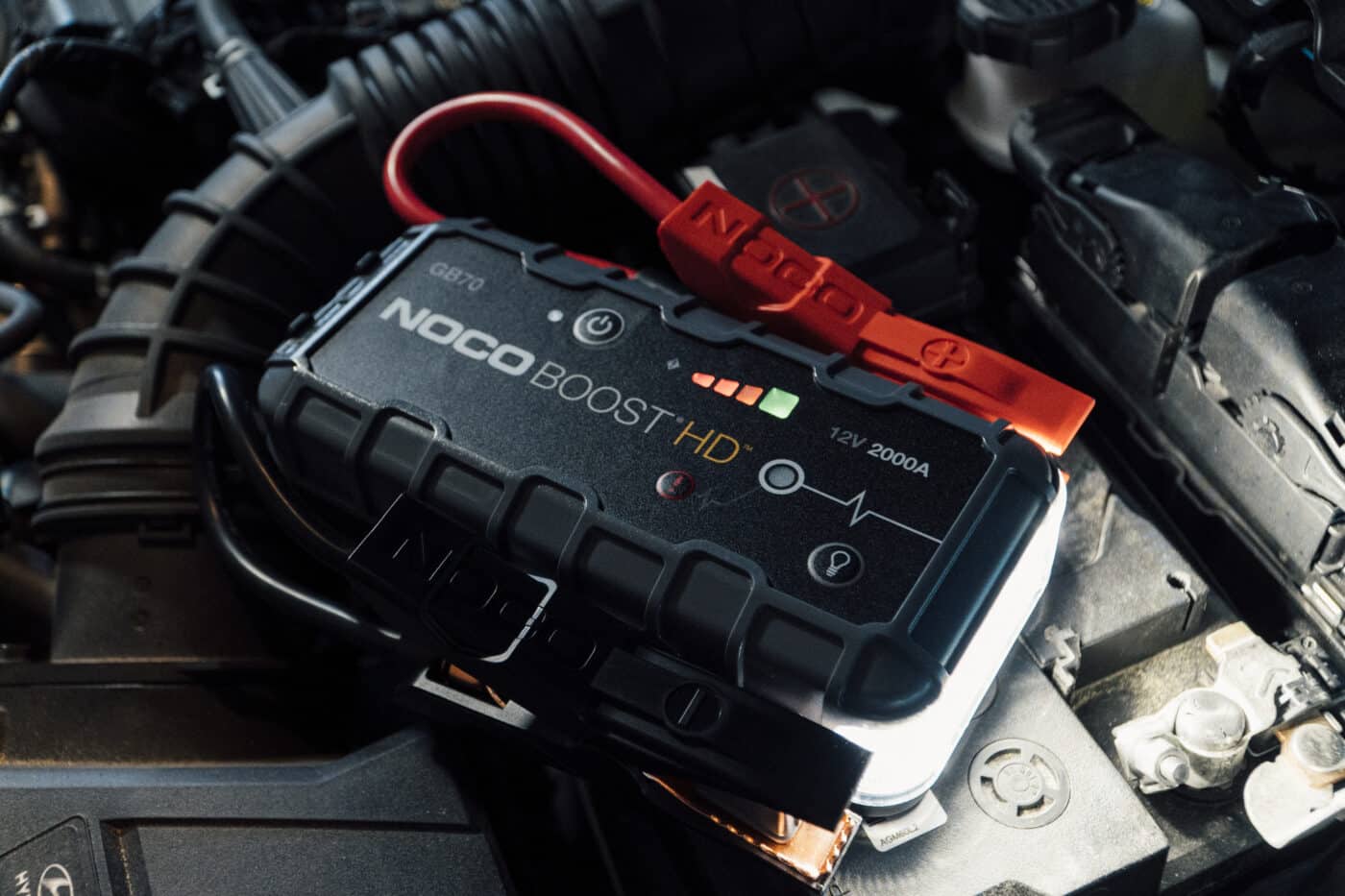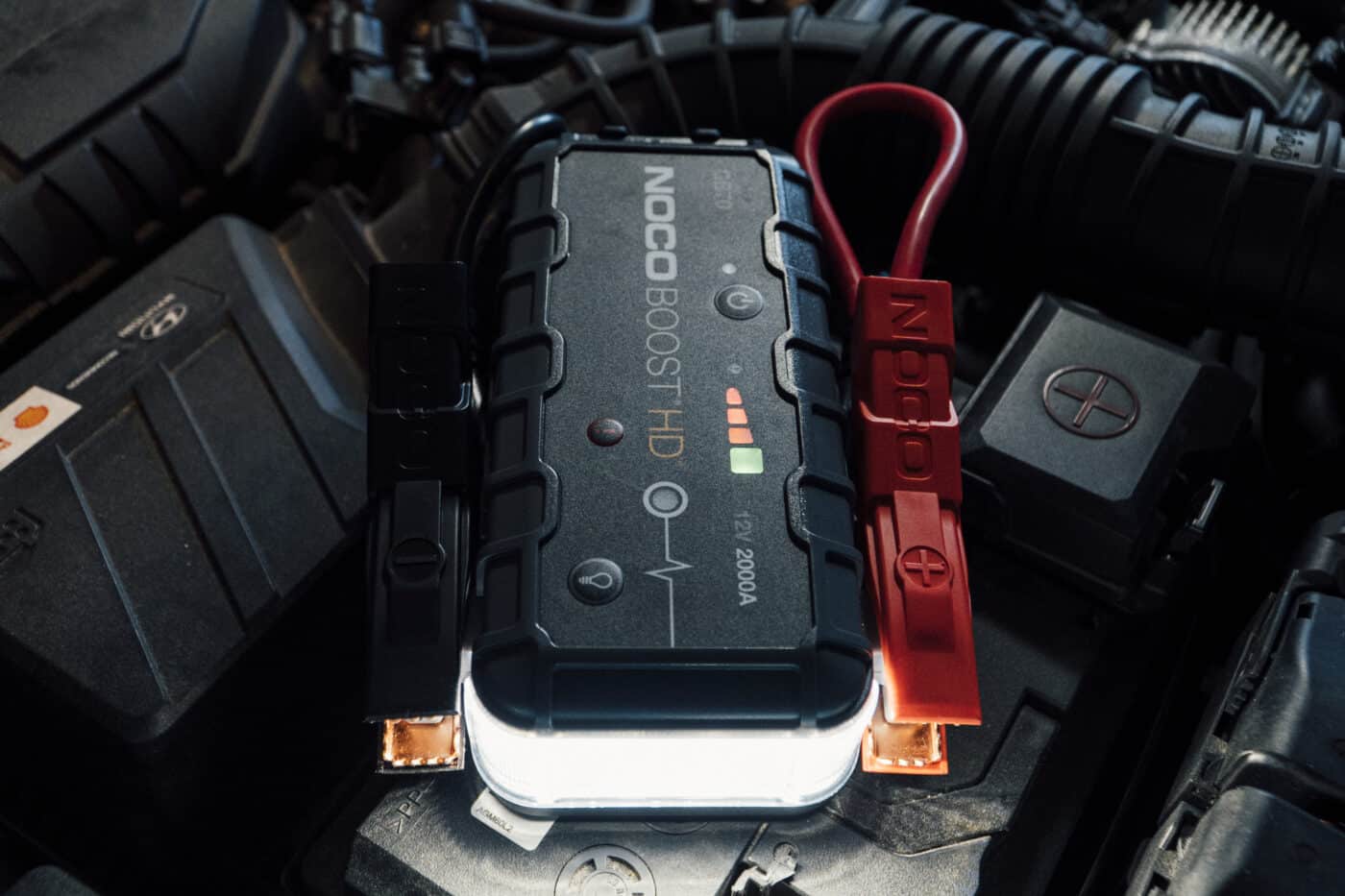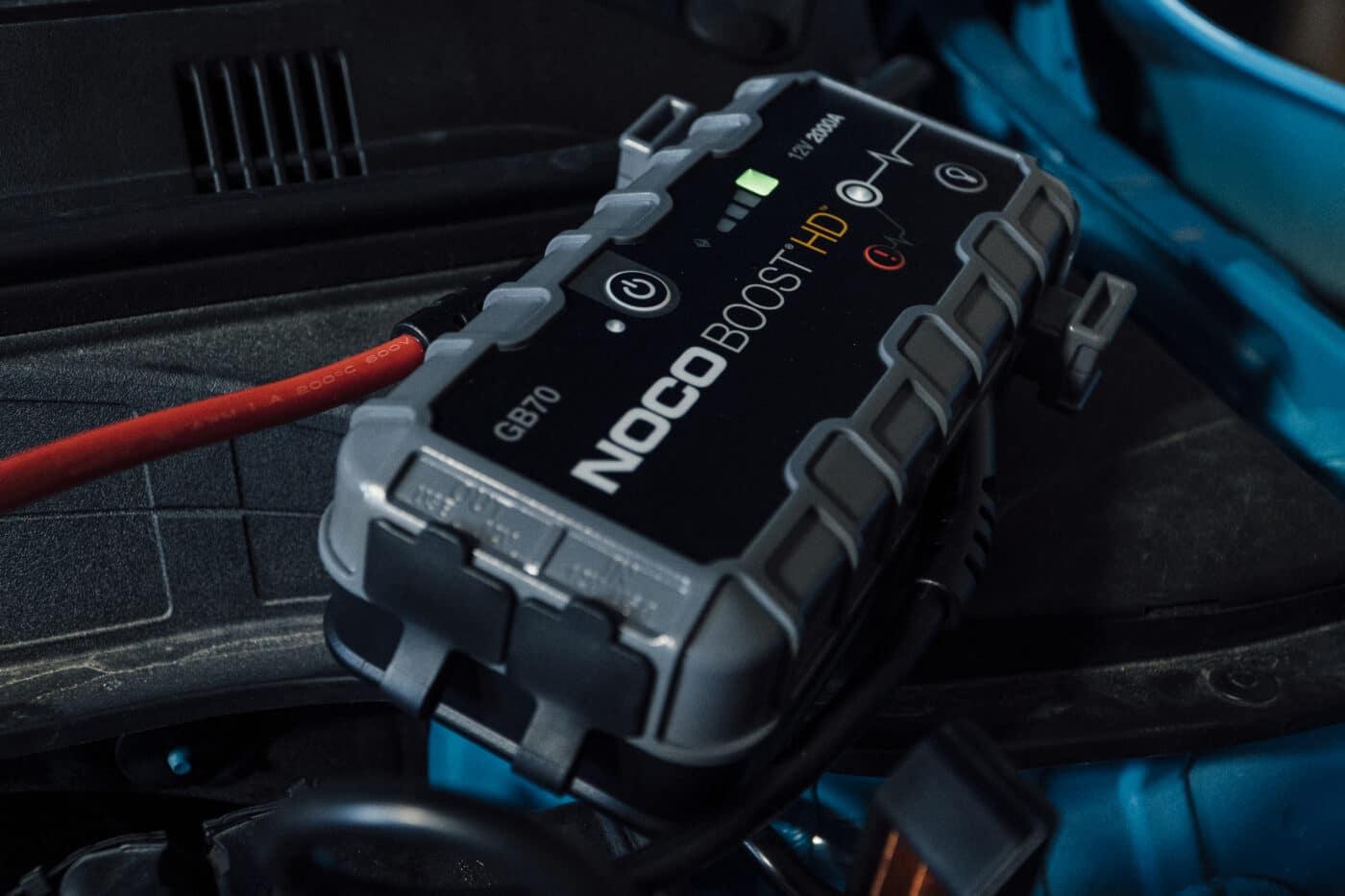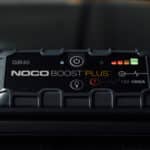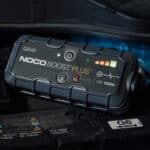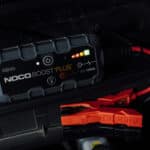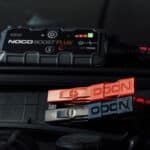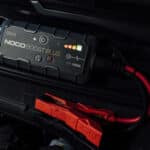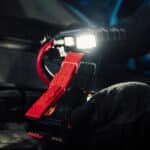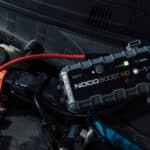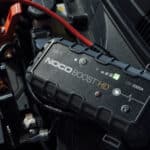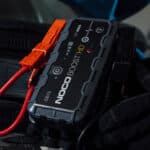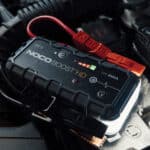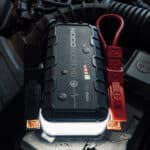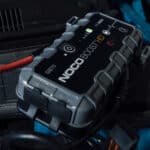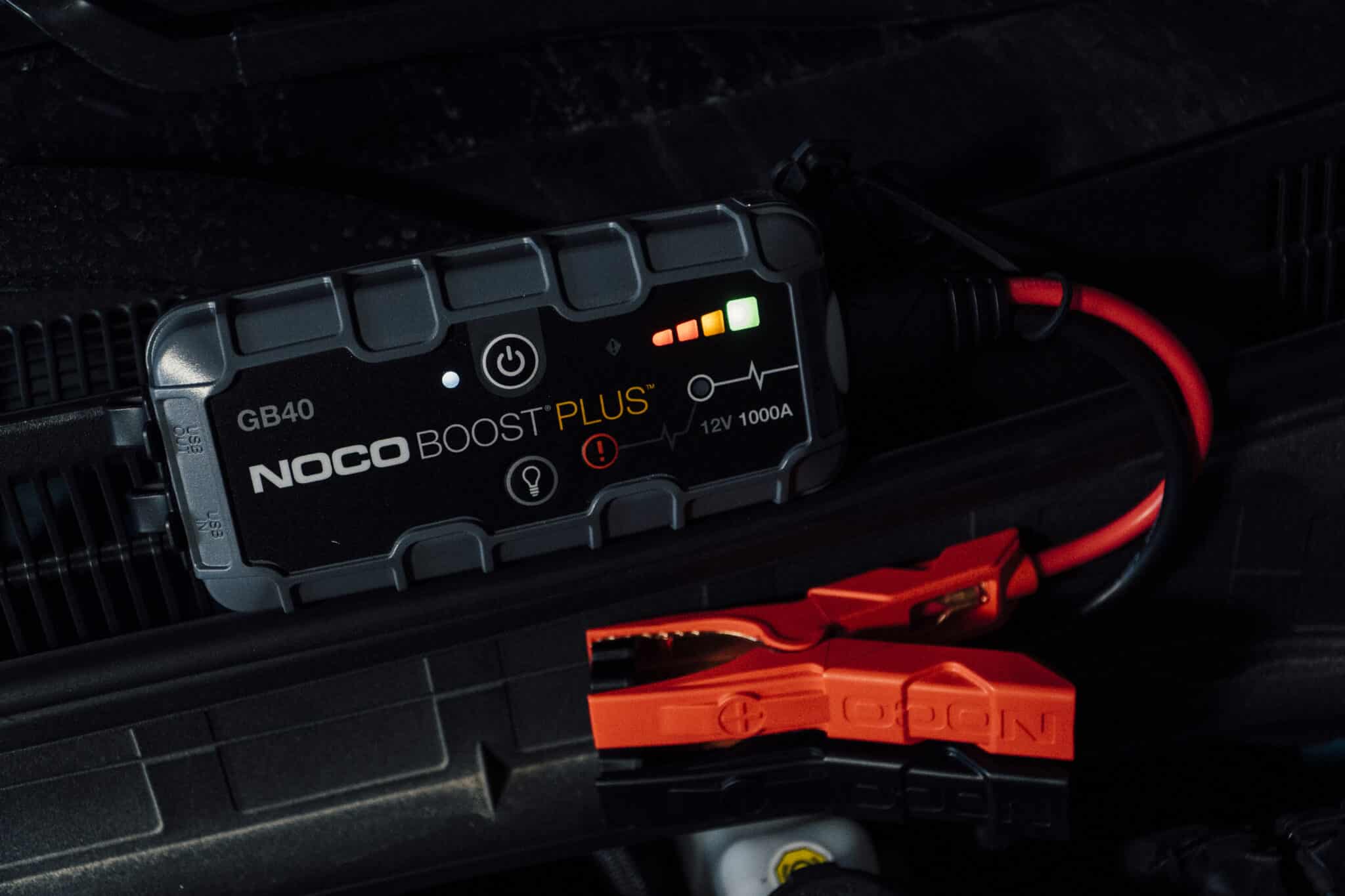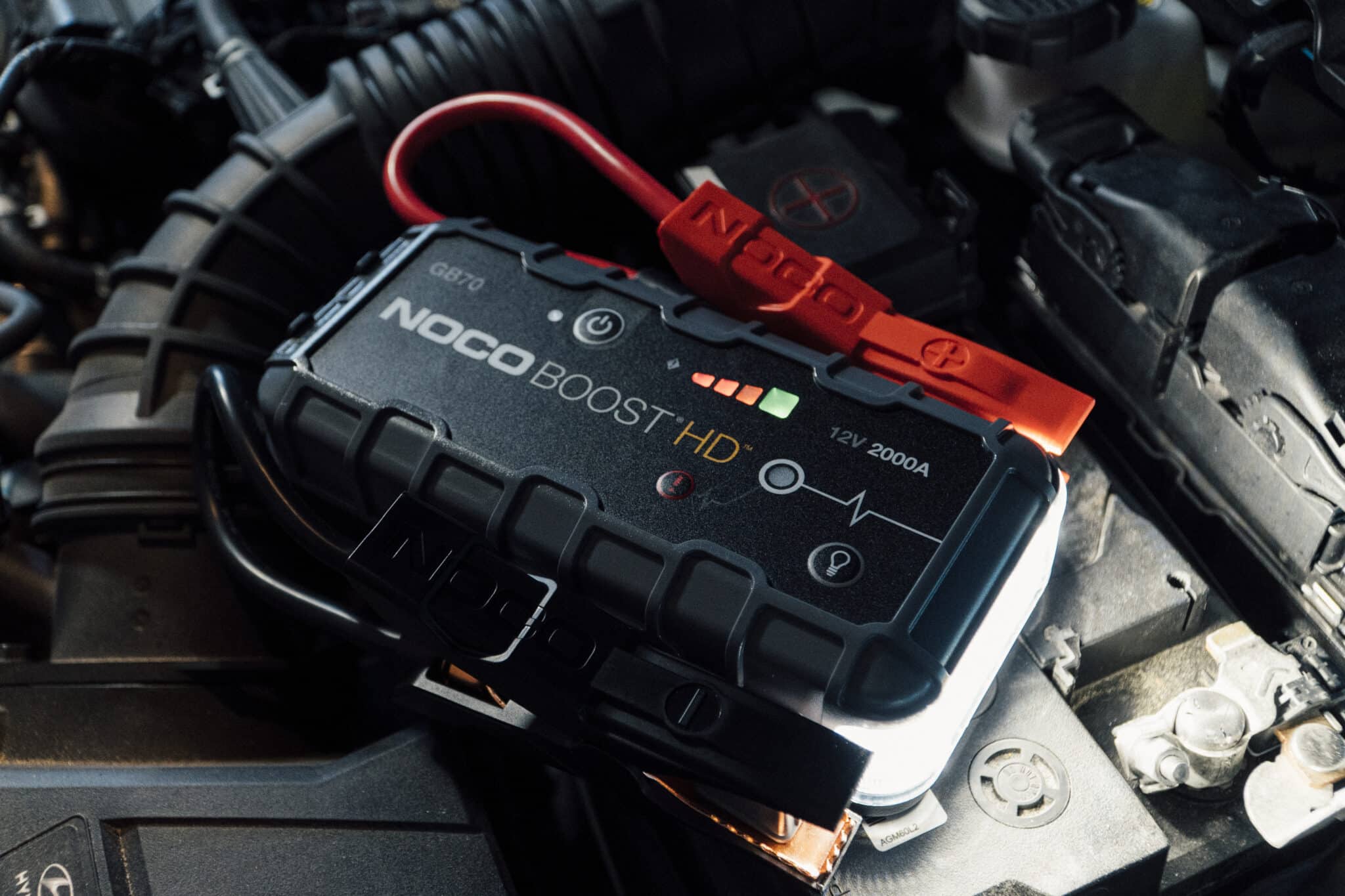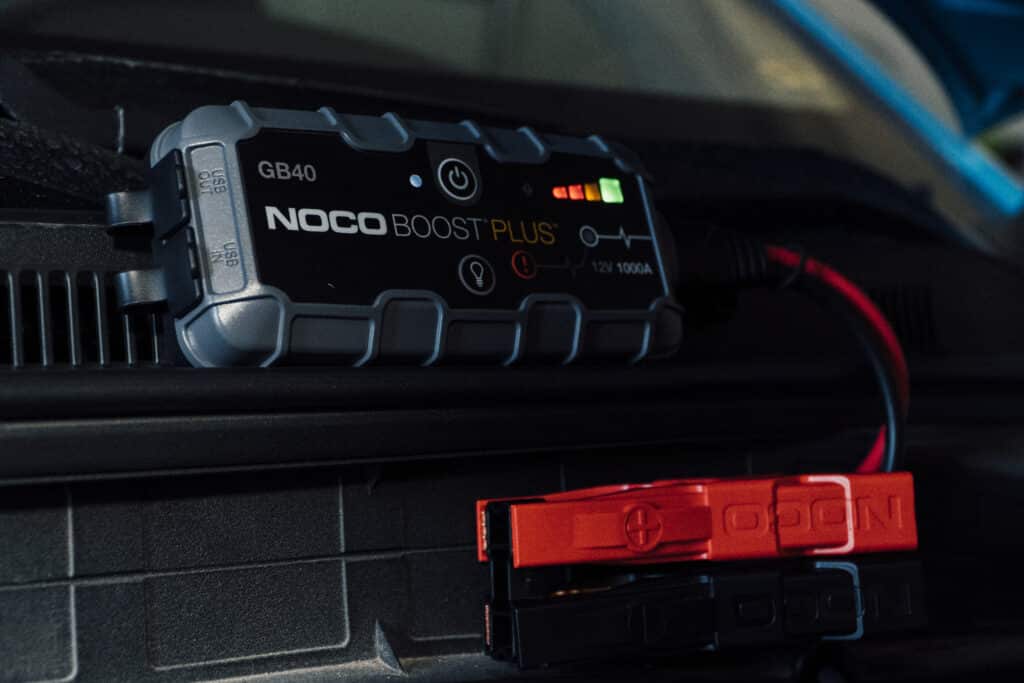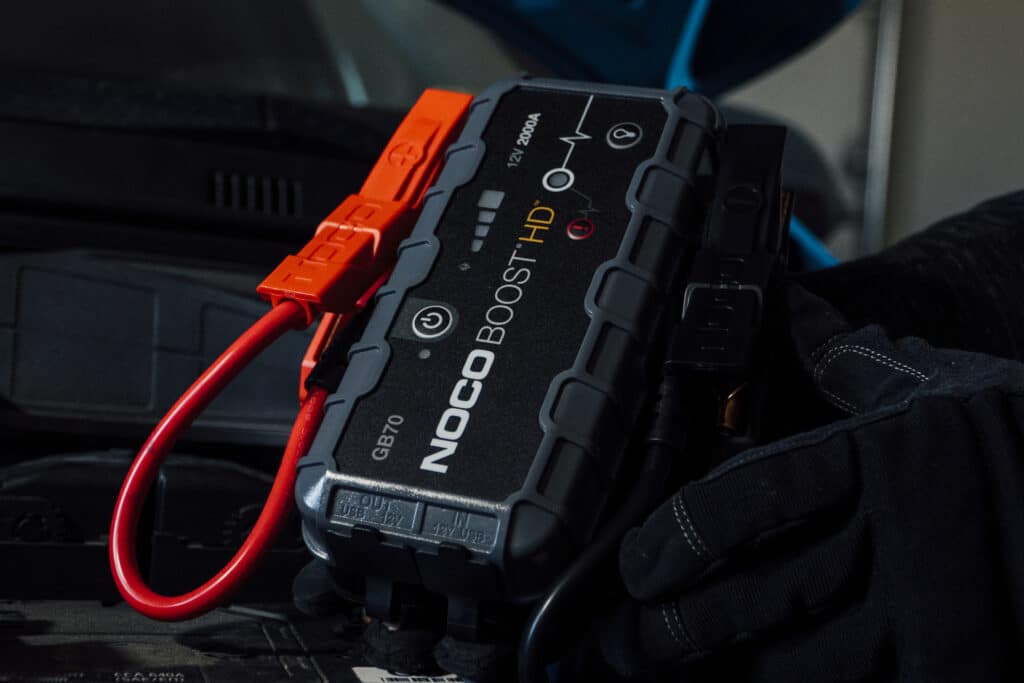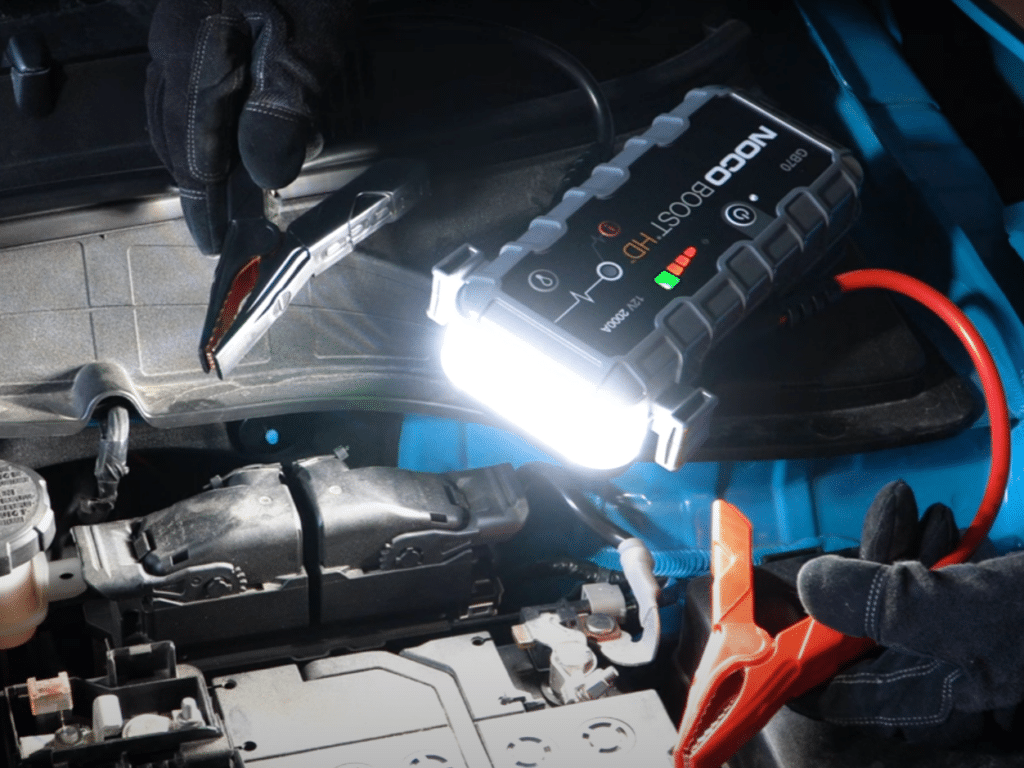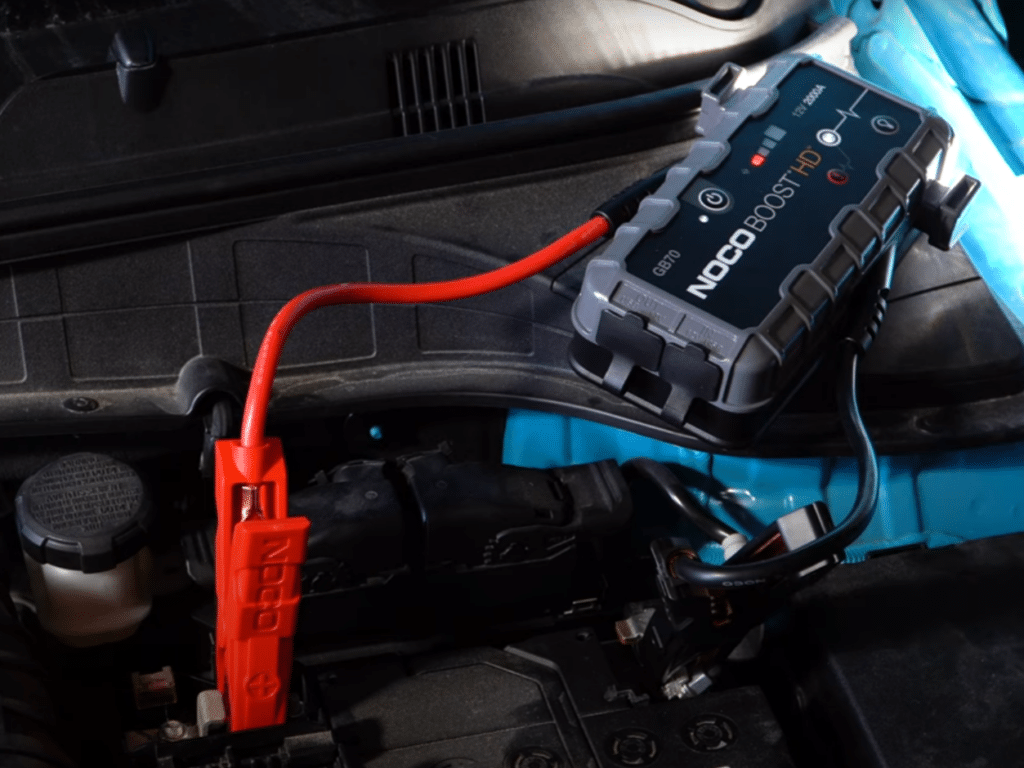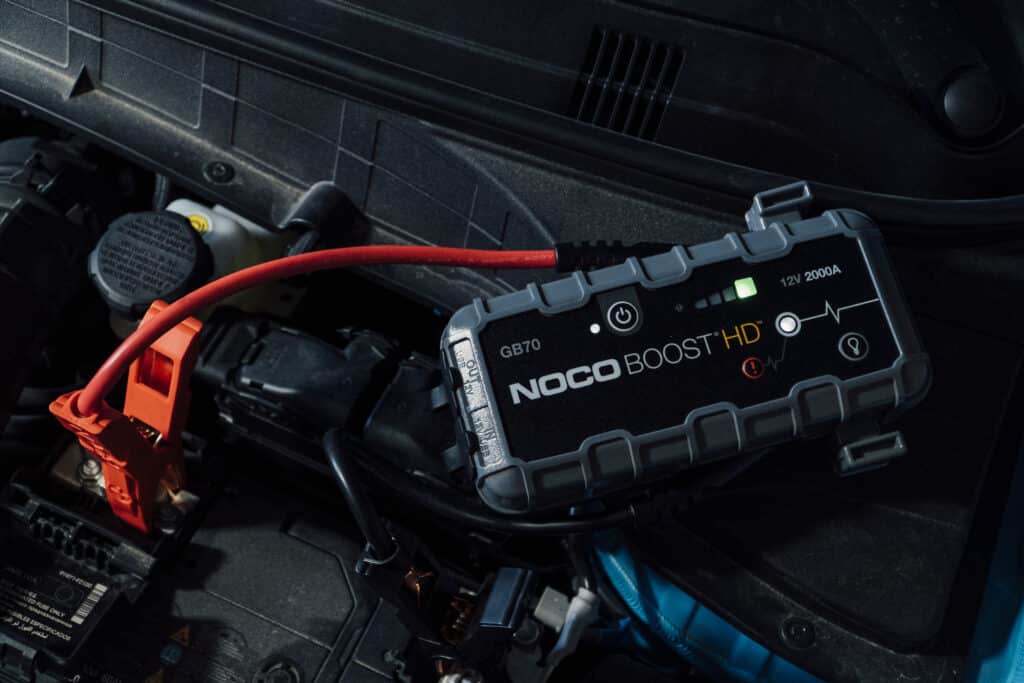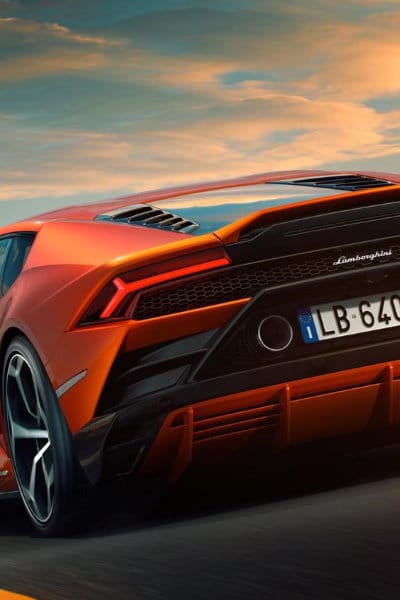Affiliate Disclosure: As an Amazon Associate, Automoblog earns from qualifying purchases. Commissions from Amazon and other affiliate partners come to us at no additional cost to you when making a purchase via this page. The portable jump starters here were sent to us by NOCO for this comparison. See our Privacy Policy to learn more.
NOCO GB40 vs. NOCO GB70: Quick Take
- Portable jump starters like the NOCO GB40 and NOCO GB70 provide the convenience of on-demand power when your car battery inconveniently dies. As a self-contained power source, portable jump starters do not require a second vehicle and jumper cables.
- The NOCO GB40 will accommodate most cars and crossovers, but if you have a truck or an SUV with a larger engine, the GB70 is a better option.
- Beyond jumping a vehicle battery, extra features make either unit a convenient tool for camping, hunting, and fishing or to have around the farm or shop.
Automoblog Review & Evaluation Process
During the winter of 2023, we received both portable jump starters from NOCO. While writing our review of the GB40 and our review of the GB70, we kept three main things in mind, listed below.
Battery & Vehicle Compatibility
The NOCO GB40 and GB70 will jump various lead-acid batteries, including wet cell, gel, maintenance-free, enhanced flooded, and absorbed glass mat (AGM) batteries. Similarly, both will jump almost any RV, marine, four-wheeler, snowmobile, or lawn mower battery.
The main difference between the GB40 and GB70 is their overall capacity, which breaks down like so:
NOCO GB40
The 1,000-amp GB40 will handle gas engines up to six liters, which covers a majority of half-ton trucks and every small to midsize sedan or SUV. If you have a “daily driver,” the GB40 offers enough juice to fire up your struggling car battery on a cold morning.
Although NOCO designates the GB70 as the “truck model,” the GB40 can accommodate smaller diesel powertrains up to three liters in displacement.
Not counting any deals or discounts, the NOCO GB40 usually retails for about $130. That said, if you drive a smaller to midsize car or SUV, the GB40 is plenty and will be a bit more affordable than the GB70.
NOCO GB70
The 2,000-amp GB70 will jump gasoline engines up to eight liters and diesel powertrains that are six liters in displacement, including late-model HD trucks from the Big Three.
As a more muscular alternative to the GB40, the GB70 is designed to handle the rigors of heavy-use trucks and vans, including those that may be part of a fleet or in service as construction, delivery, or farm vehicles.
If you have a smaller vehicle but like the idea of the GB70’s extra capacity, you can still use it without damaging your battery. As we detail further below, the GB70’s heft and power are throttled back automatically when it recognizes it’s attached to a smaller battery.
Not counting any deals or promotions, the GB70 usually retails for about $250.
NOCO GB40 (left) and NOCO GB70 (right). The rubber housing covers for the 12V and USB outlets have an IP65 rating to protect against dust and water. Photos: Alex Hartman.
Clamps & Cables: Observations & Differences
The GB40 and GB70 have what NOCO calls “precision clamps,” which refers to the clamp’s spark-proof, crocodile-jaw design. This allows the GB40 and GB70 to safely and effectively bite down on batteries and terminals of different sizes.
One potential downside is the relatively short jumper cables on the GB40 and GB70, which are forgivable since they are portable units and can be placed nearly anywhere under the hood to reach the battery.
Detachable vs. Affixed Clamps
One key difference is how the GB40’s clamps and cables are detachable while the GB70’s are affixed.
The detachable cables of the already compact GB40 make it easier to stow in the microfiber bag NOCO includes with every portable jump starter. However, the GB70’s attached cables mitigate power loss during a jump, ensuring the unit is well-suited for larger engines, especially diesel trucks.
Clamp & Flashlight Location
The potential drawback is how the GB70’s cables and precision clamps face away from the flashlight. Since the GB40’s jumper cables and flashlight face the same direction, this is a non-issue, but for the GB70, it’s worth mentioning.
On the left side of the NOCO GB70 is the charging bank, while the flashlight is on the right side. The cables and clamps trail back and away from the flashlight during a jump and go in the direction of the charging bank.
Ideally, the flashlight and the cables should point in the same direction so it’s easier to see the battery, especially at night.
NOCO describes the GB70 as the “truck model” in its lineup of portable jump starters. Our only change would be to flip the location of the charging bank and the flashlight to make it easier to see the battery at night. Photos: Alex Hartman.
Integrated Flashlight & Charging Bank
The NOCO GB40 and GB70 have built-in flashlights with seven different modes, including an SOS beacon and emergency strobe. The constant-on modes have three different brightness settings, from higher to lower. Given its size, the GB70 has a brighter 400-lumen flashlight versus the GB40’s 100-lumen flashlight.
Meanwhile, the built-in charging banks of either unit can charge a range of personal devices like phones, tablets, and e-watches. The main difference is how the GB70 comes with an XGC extension cord with a 12V male and female adaptor. This means the GB70 can power other 12V devices, like a portable tire inflator.
NOCO GB40 vs. NOCO GB70: Fail-Safe Designs
The best similarity between the GB40 and GB70 is the proprietary software platform within each unit called the Battery Management System, or BMS. As described by NOCO, the BMS is responsible for key safety features and creating a “mistake-proof” portable jump starter.
With the BMS, the GB40 and GB70 only output when the cables are correctly attached to a battery. For example, if you accidentally connect to the wrong terminal (reverse polarity), the units will not activate. Similarly, if the polarity is correct, but one of the clamps is loose, the BMS prevents them from delivering power.
With a proper connection, the white 12V LED light will illuminate. The units will make an audible click, indicating that jumping the battery is safe.
Rather than hitting everything they connect to at full blast, the GB40 and GB70 only deliver the juice required by the battery needing a jump. The units can tell the difference between a garden tractor battery and a truck battery and adjust power delivery accordingly.
Internal Battery & Charging Times
The GB40 has a 24-watt-hour lithium-ion internal battery with natural convection cooling, contrasted with the GB70 and its 56-watt-hour lithium-ion internal battery (also with natural convection cooling).
Using the included micro USB cable and a USB wall charger, the GB40 and GB70 will take about three hours to charge fully if the internal battery is completely discharged.
According to NOCO, the GB40 can provide up to 20 jump starts on a full charge in ideal conditions, whereas the GB70 will last for up to 40 jump starts.
NOCO GB40 vs. NOCO GB70 Verdict
For additional insight on each unit and its features, take a look at our video review of the NOCO GB40 and our video review of the NOCO GB70. Otherwise, here is a good summary:
- Affordable & Compact: The 1,000-amp NOCO GB40 is our pick as it accommodates a wide swath of everyday vehicles, both new and gently used. Slim and thin at under 2.5 lbs. with clamps and accessories, the GB40 is easy to stow. If you need a new, high-quality portable jump starter that won’t break the bank, the GB40 is a good pick.
- Robust & Powerful: As the bigger brother, the 2,000-amp NOCO GB70 provides more jumping power, a brighter flashlight, and a 12V power outlet. If you drive a bigger diesel truck, have a fleet of heavy-use vehicles, or want a portable jump starter with a little more muscle, the GB70 is the way to go.
Carl Anthony is the Managing Editor of Automoblog and the host of AutoVision News Radio and AutoSens Insights. As a respected automotive industry thought leader, Carl has appeared on numerous podcasts and radio shows, including Wrench Nation, Cars Yeah, The Car Doctor, and Brains Byte Back, in addition to appearing as a regular contributor on MotorMouth Radio on WHPC 90.3 FM. His work can also be seen and heard 24/7 on the Automoblog YouTube channel.


